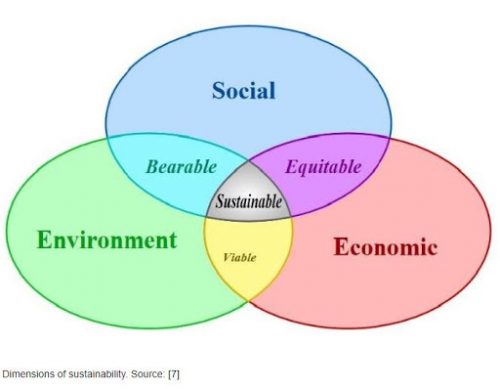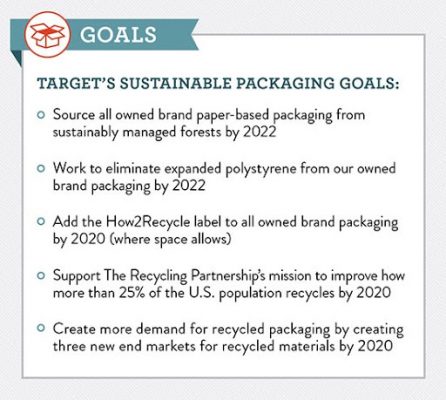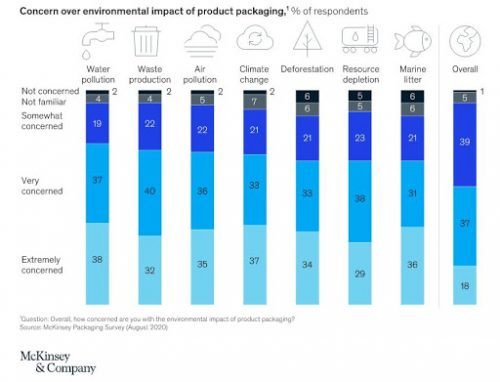
Though it might sound cliched, the pandemic has surged online shopping immensely. The numbers show that online shopping in the US alone was $861.12 billion, while the UK witnessed an 87% rise in online shopping in 2020.
With such huge demand comes greater responsibility for wholesalers and retailers to deliver the items at every nook and corner of the earth efficiently. Hence, for improving the customer experience, the sellers have resorted to the latest and modern technology to make faster deliveries and have hands-on the right amount of inventory, suppliers, 3PLs every time.
But thankfully, in all this commotion, many sellers did not let go of their sense of responsibility towards the greater good of the planet. Sustainable practices are possible at every business stage – inventory management, warehouse management, packaging, and delivering management. Several companies have already adopted sustainable ways to maintain their stock, pack, and deliver their products to customers.
So, what is sustainable management?
Well, it is a concept that strives to balance and integrate the three main decision aspects – economic, environmental, and social dimensions. When all these three bottom-line aspects are taken into consideration by any business for making decisions, it helps achieve business goals without having a severe impact on the environment.

Sustainable management is the need of our generation and it can lead to a sustainable business without compromising on future opportunities.
Advantages of sustainable business management
-
Brands can increase customer’s trust
In the U.S. alone, “61% of consumers want to support companies that protect the environment.”
Consumers these days are becoming more considerate towards the environment and sustainability. This has led several companies to package their products with biodegradable materials. Today environmentally friendly packaging materials are available not just for use as food wrapping paper to cover FMCG (Fast Moving Consumer Goods) like fast foods, fruits, and vegetables, packaged ready-to-eat foods, but also for packaging pharmaceutical products.
The retail giant Walmart is targeting to have 100% recyclable packaging by 2025. Even Target has set-up goals for sustainable packaging.

This also pushes the other companies who are doing business with Walmart, Target, to improve their packaging.
In fact, a Virginia-based packaging company called TemperPack has grown from three people to 300 in just four years. This goes on to explain the demand for sustainable packaging in today’s market by the consumers. Several other packaging companies like Cryopack, Better Earth are also flourishing due to this new trend among consumers.

So, all this is possible only because of consumers’ support and demand for eco-friendly products and packaging materials.
-
Brands can increase the prices
According to a recent survey conducted by Mckinsey & Company,
- 60 to 70% of consumers in the U.S.A. said they would pay more for sustainable packaging.
- 52% of consumers would buy more products with sustainable packaging if those products didn’t cost more than conventionally packaged ones.
- Nearly 36% of consumers would buy additional sustainably packaged products if they were more available in stores and better labeled (to indicate green packaging).
Such data indicates that price is not the only factor that people take into consideration when buying products. People have become more aware of the environmental issues, and each one wants to contribute towards conserving the earth. Hence, a slight amount of rising prices will not hamper the woke people in buying sustainable products.
-
Attract investors and woke customers
‘Sustainable’ and ‘organic’ are in vogue these days and any product of services labeled with these tags has great fan-following and loyal customers. Hence, investors these are days are looking for companies that are carrying out their business in a sustainable manner or selling organic products.
Apart from being a vogue, sustainability is the need of the hour, and several benevolent investors, foundations, and institutions focus on investing in such companies only.
The customers these days have also changed their mind-set and are motivated to buy something more if it is organic or sustainable. The number of such woke customers is on the rise and will continue to increase in the coming years. Therefore, the future seems to be bright for the businesses that are practicing sustainability.
-
Improve the brand value in the market
Sustainable brands share a fair share of loyal customers in the market and hence, the company’s reputation goes high. This helps in boosting the brand value of the sustainable company as well as gain secured future earnings.
People have quick and easy recognition of their logo, products, etc. also, sustainable brands can create a huge buzz on the social media platform, and they can even rope in celebrities to promote their products. All these activities lead to making a strong brand value in the market.
For example, the Automotive sector’s biggest issue is carbon emissions and depleting petrol resources. Therefore, Honda was the first company to recognize this and started building fuel-efficient cars. They made cars that used clean technology and reduced gas emissions. Such an environment-friendly and natural resources friendly approach helped the company achieve its success today world-wide through their star models like Civic and Fit.
Wrapping it up
Companies have the power to change the world with their humane approach towards the environment and the global natural resource crisis. Sustainability is the new business strategy, it is not a fad. The advantages are immense if each company follows the right kind of sustainable practices. Also, each company needs to adopt sustainable practices while achieving its business goals if they wish to flourish for a longer period of time.
About Author
Krishna is a content specialist with 10+ years of experience in the field. As a Sr. Content Writer at Orderhive, she helps online vendors to learn more about the latest trends and technological advancements in managing inventory, warehouse, orders, and shipping. Her articles give insight into how to leverage these new technologies to their advantage and optimizing their overall eCommerce operations.
Interesting Related Article: “Sustainable Practices for Restaurants – Reduce Your Carbon Footprint“

